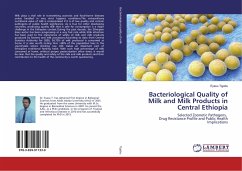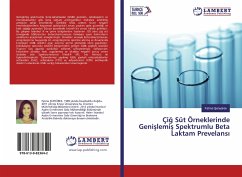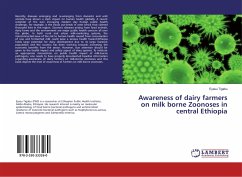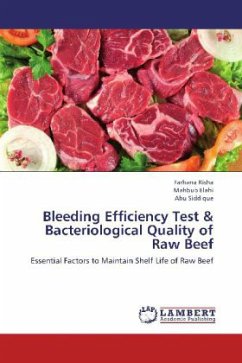
Bacteriological Quality of Milk and Milk Products in Central Ethiopia
Selected Zoonotic Pathogens, Drug Resistance Profile and Public Health Implications
Versandkostenfrei!
Versandfertig in 6-10 Tagen
46,99 €
inkl. MwSt.

PAYBACK Punkte
23 °P sammeln!
Milk plays a vital role in transmitting zoonotic and food-borne diseases unless handled in very strict hygienic conditions.The extraordinary nutritional value of milk is compromised if it is of low quality and contain pathogens of public health significance. As is true for other developing countries, producing quality milk that is safe for consumption is a major challenge in the Ethiopian context.During the past decade, the Ethiopian dairy sector has been progressing at a very fast rate while little attention has been paid to the importance of safety of milk and milk products produced by farme...
Milk plays a vital role in transmitting zoonotic and food-borne diseases unless handled in very strict hygienic conditions.The extraordinary nutritional value of milk is compromised if it is of low quality and contain pathogens of public health significance. As is true for other developing countries, producing quality milk that is safe for consumption is a major challenge in the Ethiopian context.During the past decade, the Ethiopian dairy sector has been progressing at a very fast rate while little attention has been paid to the importance of safety of milk and milk products produced by farmers and milk processors.According to data from Central Statistics Authority for 2005, 54.75% of milk produced is consumed at home. It is also worth noting that 80% of the population lives in the countryside where drinking raw milk makes an important part of Ethiopians traditional feeding habit. With such high percentage of milk consumed at home, without proper pasteurization often times, it would be clear that the quality and safety of the milk and milk products and their contribution to the health of the community is worth questioning.












